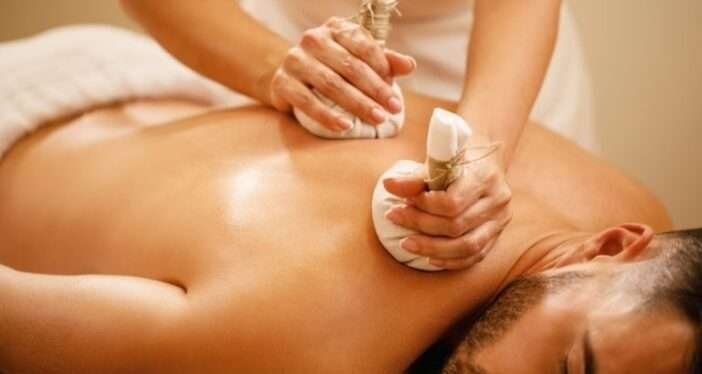
If you’re curious about deep cleansing and long-term wellness, Panchakarma Therapy is Ayurveda’s classical detox and rejuvenation protocol. This blog explains what Panchakarma Therapy is, its main benefits, who it helps, what to expect during a typical programme, safety notes, and how to prepare. For personalised guidance and to see whether Panchakarma Therapy suits you, book a consultation with an Ayurvedic practitioner.
The problem
Modern life piles on toxins, stress and metabolic sluggishness. The immediate problems are low energy, digestion issues, recurring allergies, joint stiffness and poor sleep. The deeper problem — from an Ayurvedic view — is accumulation of ama (digestive toxins) and doshic imbalance. Panchakarma Therapy aims to remove ama, reset digestion (agni), and rebalance doshas so healing can begin from the root.
What is Panchakarma Therapy? — a short primer
Panchakarma Therapy means “five actions” (pancha = five, karma = actions). It’s not a single treatment but a carefully staged programme that includes preparatory care, the five major cleansing procedures, and post-procedure rebuilding. The core therapies are:
- Vamana (therapeutic emesis) — controlled cleansing of upper gut for Kapha disorders.
- Virechana (therapeutic purgation) — liver and bowel cleansing for Pitta imbalance.
- Basti (medicated enemas) — the main Vata-balancing detox.
- Nasya (nasal administration) — clears head channel and sinuses.
- Raktamokshana (bloodletting) — used selectively for specific blood/toxin conditions.
These procedures are delivered under clinician supervision and combined with personalised diet, oil therapies (Abhyanga), fomentation (Swedana) and rest.
Top 10 benefits of Panchakarma Therapy
- Deep detoxification: removes accumulated ama from tissues and channels.
- Improved digestion & metabolism: strengthens agni for better nutrient absorption.
- Reduced chronic inflammation: many patients report lower joint and muscular inflammation.
- Better sleep & stress resilience: relaxation therapies and toxin removal support restful sleep.
- Clearer respiratory health: Nasya and internal cleansing often reduce congestion and sinus issues.
- Improved skin health: removal of toxins can reduce chronic eruptions and dullness.
- Hormonal balance & reproductive support: by correcting metabolic and doshic imbalances.
- Enhanced energy & mental clarity: many patients feel more alert and less fatigued.
- Support for chronic conditions (integrative): when combined with medical care, can help manage long-term complaints.
- Rejuvenation & longevity: rasayana (rejuvenative) therapies after Panchakarma rebuild tissues and ojas.
Note: Benefits vary by individual, constitution (prakriti) and the expertise of the practitioner. Panchakarma is a therapeutic process, not a quick cleanse.

Who should consider Panchakarma Therapy?
- People with repeated digestive complaints (bloating, constipation).
- Those with chronic fatigue, recurrent allergies, skin issues or persistent stiffness.
- Individuals seeking a structured, medicinal reset (weight management, metabolic support).
- People wanting an Ayurvedic rejuvenation under clinical supervision.
Avoid Panchakarma if you are severely frail, pregnant, acutely febrile, or have uncontrolled serious illnesses — always evaluate with a qualified practitioner first.
What a typical Panchakarma Therapy programme looks like
- Assessment & planning (1–2 visits): history, pulse/prakriti assessment and basic tests.
- Purvakarma — preparatory phase (7–14 days): Abhyanga (oil massage), Swedana (steam), and a light, detox-supporting diet to mobilise toxins.
- Shodhana — the main cleansing procedures (variable): Vamana/Virechana/Basti/Nasya etc., selected and timed by your doctor.
- Paschat karma — post-procedure rebuilding (7–21 days): Rasayana (rejuvenation), nutritious diet, gentle therapies to restore strength.
- Follow-up & maintenance: lifestyle advice, seasonal tips, and herbal supports to hold gains.
Duration depends on needs — short Panchakarma (10–14 days) is common; more intensive programmes run 21–45 days.
Preparing for Panchakarma Therapy — practical tips
- Medical check-up: share all medications and medical history with your practitioner.
- Diet change: begin warm, cooked, easy-to-digest meals 3–7 days before.
- Arrange rest time: plan no major travel or heavy work for the duration and a few days after.
- Comfort items: loose clothing, favourite pillow and water bottle.
- Mental preparation: slower routines, reduce stimulants (caffeine/alcohol) beforehand.
Aftercare — how to keep the benefits
- Follow the prescribed post-Panchakarma diet and rasayana course.
- Continue gentle daily routines (warm water, light oil massage, pranayama).
- Gradually reintroduce exercise; prefer walking, yoga and low-impact strength work initially.
- Schedule seasonal mini-resets and check-ins with your Ayurvedic practitioner.
Safety, evidence & realistic expectations
- Panchakarma Therapy must be done by trained Ayurvedic doctors in a clinical setting.
- Some procedures (Vamana, Virechana, Basti) are powerful and require medical supervision — never self-administer.
- Scientific research on Panchakarma is growing; many trials show physiological benefits (improved metabolic markers, reduced symptoms) but individual results vary.
- Panchakarma complements conventional medicine for many chronic issues but is not a guaranteed cure-all. Coordinate care when you have chronic medical conditions.
When to consult an Ayurvedic practitioner
If you have chronic digestive complaints, recurring allergies, autoimmune or metabolic concerns, persistent fatigue, or you’re planning a therapeutic detox — professional assessment is essential. To find out whether Panchakarma Therapy is right for you and to get a tailored plan, book a consultation with Vedic Upchar:
👉 https://vedicupchar.com/doctor-consultation
A practitioner will assess your prakriti, recommend the right Panchakarma sequence, and ensure safety with appropriate tests and monitoring.
Quick summary — is Panchakarma Therapy right for you?
Panchakarma Therapy is a time-tested Ayurvedic detox and rejuvenation package. It helps remove deep-seated toxins, rebalance doshas and rebuild vitality when done properly. If you want a structured, clinician-led reset and are willing to follow pre- and post-care, Panchakarma can be transformative.